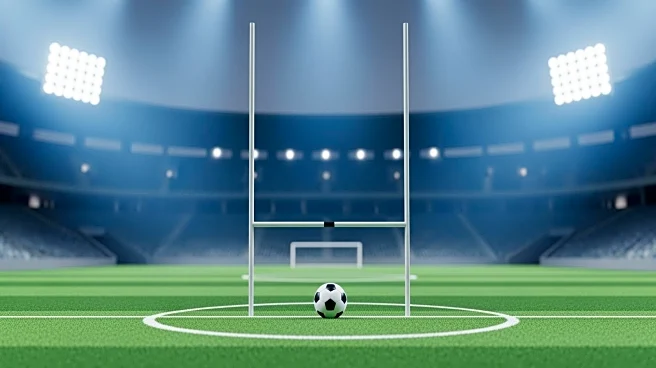What's Happening?
The UEFA qualification process for the 2026 World Cup is nearing its conclusion, with the final four spots for European teams to be determined through playoffs scheduled for March 2026. The playoffs will
involve 16 teams, including the 12 group stage runners-up and the four best-ranked group winners from the UEFA Nations League who did not finish in the top two in World Cup qualifying. These teams will compete in four routes, each featuring a one-legged semifinal and a final to secure a place at the World Cup. As of now, 30 nations have qualified for the 48-team tournament, with nine of UEFA's 16 total World Cup spots secured during games played in November. The final four European berths will be determined through these playoffs, with teams like Switzerland showing strong performances in their qualifying matches.
Why It's Important?
The playoff structure is crucial as it provides a second chance for teams that narrowly missed direct qualification. This process ensures that competitive teams still have an opportunity to participate in the World Cup, maintaining the tournament's high level of competition. The playoffs also highlight the importance of the UEFA Nations League, as it offers an alternative path to qualification. For countries like Ukraine, which are aiming for their first World Cup appearance since 2006, the playoffs represent a significant opportunity. The outcome of these playoffs will impact the final composition of European teams in the World Cup, influencing the tournament's dynamics and potentially affecting the performance of teams from other continents.
What's Next?
The draw for the playoffs will take place in Switzerland, with matches scheduled for the March international break. Teams will be preparing for these crucial games, focusing on strategies to secure their spot in the World Cup. Stakeholders, including national football associations and fans, will be closely monitoring the developments, as the playoffs could lead to unexpected outcomes and shifts in team rankings. The anticipation surrounding these matches is likely to increase as the date approaches, with teams intensifying their training and tactical preparations.
Beyond the Headlines
The playoff system underscores the competitive nature of international football, where even strong teams must navigate complex qualification processes. It also highlights the role of the UEFA Nations League in providing additional competitive opportunities for teams. The playoffs could lead to unexpected results, potentially altering the landscape of European football and influencing future qualification strategies. Additionally, the exclusion of Russia due to geopolitical issues reflects the intersection of sports and international relations, emphasizing the broader implications of political decisions on global sporting events.










